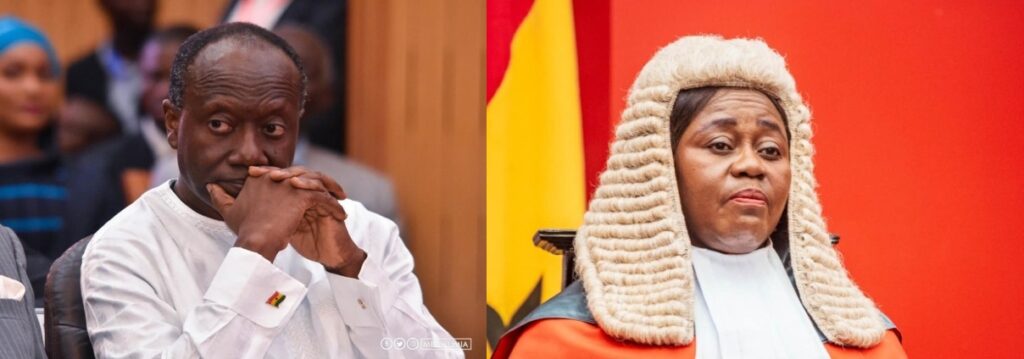Court throws out legal bids by Torkornoo and Ofori-Atta

Court throws out Torkornoo, Ofori-Atta cases after two judges delivered rulings that cleared the way for investigations to proceed without delay.
Justice Kwame Amoako, who presided over Chief Justice Torkornoo’s challenge, dismissed her request outright. He said her complaints overlapped with matters still pending at the Supreme Court.
He noted that the High Court had no power to interpret constitutional provisions or probe in-camera committee work.
Justice Amoako referenced previous rulings that bound the lower court, including the CENCES and Dery cases. He said the law clearly barred external interference with Article 146 proceedings.
Torkornoo had claimed the committee acted unlawfully by withholding certified petitions and pushing ahead with hearings. She also questioned the legitimacy of the committee itself.
However, the Attorney General pushed back, arguing that the Supreme Court had already handled or was considering those issues. The judge agreed.
He said Torkornoo’s reliefs—ranging from registry failings to constitutional violations—couldn’t override Supreme Court authority.
In a separate courtroom, Justice Lydia Osei Marfo dealt a second blow.
She dismissed Ken Ofori-Atta’s attempt to quash the arrest warrant secured by the Special Prosecutor. Ofori-Atta argued the OSP acquired it unlawfully. The court didn’t buy it.
Justice Marfo said the OSP followed the rules and obtained the warrant legally. Therefore, she saw no reason to cancel it.
Ofori-Atta currently faces investigations into five major financial deals under his leadership. These include contracts with GRA, ECG, and the controversial National Cathedral project.
Authorities are also probing his role in the ambulance procurement deal and disbursements from the GRA’s Tax P-Fund.
Back in February, the Special Prosecutor labeled him a “fugitive from justice.” That move came after he skipped multiple summons. His lawyers had promised a return in May but failed to deliver.
Eventually, the OSP issued an Interpol Red Notice. Ofori-Atta responded by asking the court to strike it down. That bid failed too.
Both rulings send a clear message: the courts won’t shield high-ranking officials from accountability. Neither Torkornoo nor Ofori-Atta will halt the proceedings they tried to escape.
As the legal tide rises, Ghana’s judiciary seems intent on holding even the most powerful to the same rule of law.



